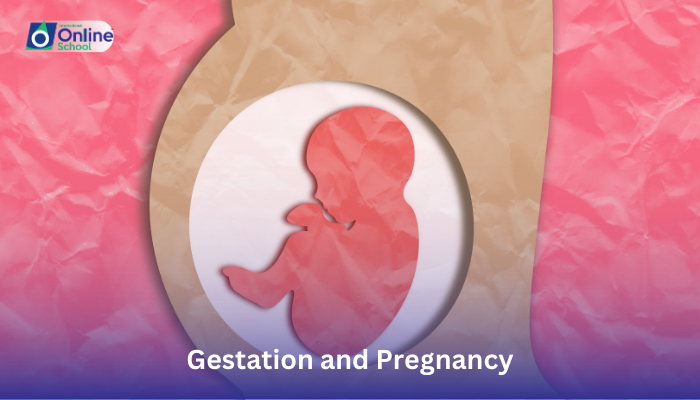
Learning Outcomes:
i. Define the terms "gestation" and "pregnancy" in the context of embryonic development.
ii. Differentiate between the specific meanings and applications of each term.
iii. Understand the broader context in which each term is used.
iv. Appreciate the importance of clear and accurate terminology in scientific communication.
Introduction:
In the world of human development, two terms are often used interchangeably: gestation and pregnancy. While they might seem like synonyms, understanding their subtle differences is crucial for accurate communication and a deeper understanding of this fascinating biological journey. In this lesson, we'll unravel the threads of meaning behind these terms, clarifying their distinct roles in the grand narrative of development.
i. Gestation: Focused on the Fetus
Think of gestation as a close-up view, a microscope focused on the developing baby. It refers to the period of time during which a fetus grows and develops inside the mother's womb. This period starts with fertilization and ends with birth, encompassing all the remarkable transformations that occur within the fetus itself.
Key aspects of gestation:
Cell division and differentiation
Organ formation and maturation
Growth in size and complexity
Preparation for life outside the womb
ii. Pregnancy: A Broader Canvas
Pregnancy, on the other hand, paints a wider picture. It encompasses the entire state of a woman carrying a developing fetus, including both the biological and social aspects. It's a broader term that goes beyond the fetus to consider the mother's experiences, emotions, and the societal context surrounding this transformative period.
Key aspects of pregnancy:
Hormonal changes and adaptations in the mother's body
Emotional and psychological adjustments
Prenatal care and preparation for childbirth
Social and cultural implications of pregnancy
iii. The Intersection of Terms: A Blurry Line?
While gestation and pregnancy have distinct meanings, there can be some overlap. For example, the due date is often considered the end of both gestation and pregnancy. However, it's important to remember that pregnancy extends beyond just the fetal development timeline.
iv. Clarity and Accuracy: Why Proper Terminology Matters
Using the correct term in the right context is crucial for accurate scientific communication and understanding. It helps avoid confusion and ensures that information is conveyed precisely. For example, stating the "gestation period" of a species provides specific information about fetal development, while discussing "pregnancy outcomes" takes a broader view, including the mother's well-being.
Gestation and pregnancy, though intertwined, are distinct threads in the tapestry of human development. Understanding their individual meanings and applications allows us to navigate this complex topic with clarity and precision. Remember, accurate terminology is a bridge between knowledge and understanding, paving the way for a deeper appreciation of the remarkable journey of life from conception to birth.